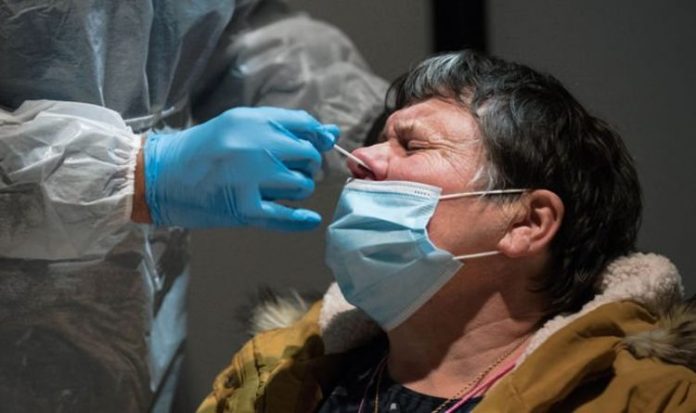A highly transmissible strain of coronavirus which was first seen in Brazil has made its way to the UK, prompting surge testing in affected areas. The brazil variant has been found in at least 20 countries, and scientists have now warned it can re-infect people who previously had the virus.
A study of the mutant virus’s emergence and its spread in the Amazon jungle city of Manaus, the scientists said the variant – known as P.1 – has a “unique constellation of mutations”.
The scientists found the Brazilian strain has very rapidly become the dominant variant circulating there.
Nuno Faria, a virus expert at Imperial College London said out of 100 people in Manaus who had previously recovered from infection with the coronavirus, “somewhere between 25 and 61 of them are susceptible to re-infection with P.1.”
Mr Faria co-led the research which has not yet been peer-reviewed.
Read More: Brazil Covid variant stronger against vaccine- doubts raised on spread
Following the announcement, Gloucestershire Council’s public health director Sara Blackmore has said the risk of the variant was “low and contained”.
She said: “We are keen that all South Gloucestershire residents in the postcode areas identified take part in this testing, which will help us to identify positive cases and prompt self-isolation, which helps to break the chain of transmission.
“We do recognise the challenge for residents of undertaking another additional testing programme and want to thank you in advance for your patience and support as we continue to work together to protect our communities from Covid-19.
“We are working together with local and regional health partners, Public Health England and NHS Test and Trace, to deliver this swift, safe and co-ordinated response, with an enhanced community testing offer available to people in and around areas where this variant has been discovered.”
The third unlinked case has not yet been located, with the person in question not completing their test registration card.
So, anyone who took a Covid test on February 12 or 13 and has not yet been given their results, or has an uncompleted test registration card, should come forward to PHE.
This has led to criticisms of the controls at borders when it comes to protecting against new strains, with critics saying the Government should have impemented quarantine hotels in quicker.
Chairwoman of the Commons Home Affairs Committee, the Labour MP Yvette Cooper, said: “This troubling development shows the weaknesses in the Government’s Covid border measures.
“The Brazil variant was first identified a month before one of these cases was brought in on February 10 and many weeks after the Prime Minister was warned that indirect flights were a problem, yet the Government delayed putting stronger measures in place.
“We need to know urgently how all these cases have arrived in the country and why they weren’t prevented or picked up on arrival so that lessons can be quickly learnt and policies changed to protect the vaccine programme from further cases arriving.”







